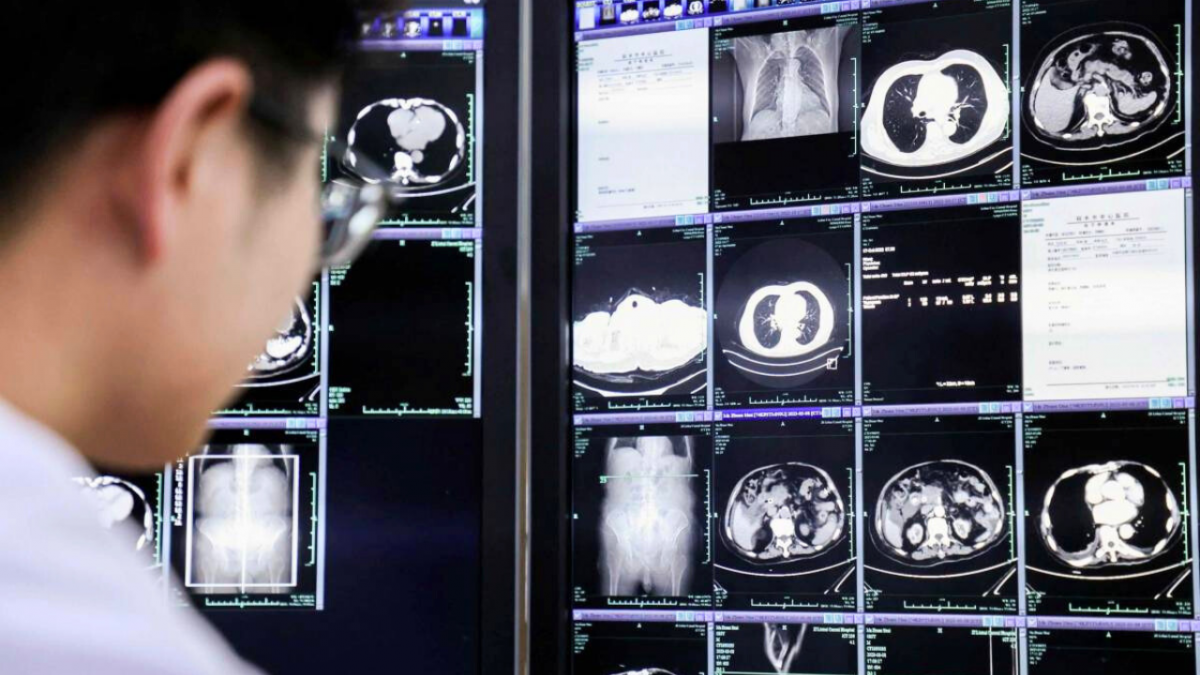
Photo credit: Alibaba Group
Fortune has named Alibaba Group to its 10th annual Change the World list, which recognizes the world’s top companies leading innovation and social impact through profit-driven operations.
A team of Fortune editors winnowed down a field of 250 nominees to craft the final list of 52 companies, which includes Alibaba in 8th place — the only Chinese company in the top 10.
“These companies let their actions speak for themselves—harnessing the creative impulses of capitalism to address social problems and generating revenue while doing so,” Fortune Executive Features Editor Matt Heimer said in a statement.
Alibaba earned its spot for a ground-breaking tool developed by its research arm DAMO Academy that makes diagnosis of cancerous malignancies faster and more cost-effective.
The AI-powered cancer detector screens for early signs of pancreatic ductal adenocarcinoma, which is responsible for nearly half a million deaths globally every year, according to estimates.
“Our goal is to leverage AI to cover the entire process of cancer treatment—from early detection to diagnosis with great precision and accessibility,” said Le Lu, head of DAMO’s medical AI team.
The tool, dubbed PANDA by researchers, was deployed earlier this year at two hospitals in Zhejiang province on China’s east coast.
PANDA is 34.1% more sensitive than radiologists to picking up abnormalities when it comes to screening scans, according to a study published in 2023 by DAMO Academy in collaboration with over 10 medical institutions.
The deep learning-based model is able to detect cancerous masses in the pancreas by examining non-contrast CT scans, a more efficient form of medical imaging used worldwide with a lower dose of radiation than contrast CT scans.
“Our cloud-based solution empowers patients who might not have access to cancer screening due to the scarcity or high costs associated with expert medical care,” said Lu, who spoke with Alizila in May about the innovation.
Since launching in 2023, the tool’s use has expanded from identifying pancreatic cancer to detecting a range of cancers, including tumors of the liver, esophagus, colon and more.
“We’ll continue to leverage technology and strategic partnerships with hospitals to make healthcare services more accessible, comprehensive, accurate, cost-effective and efficient,” added Lu.
Leveraging AI for Social Good
Alibaba’s business units are deploying AI in a range of use cases to the benefit of wider society.
At last year’s Asian Games, Alibaba Cloud launched a digital avatar named Xiaomo to facilitate two-way translation between sign language and Chinese.
The AI-powered translator took two years to develop and enabled hearing-impaired Asiad participants to ask people for directions, view event schedules and more.
Earlier this year, the cloud computing company also introduced an AI-powered tool to create picture books for autistic children.
Since launching online in June, more than 50,000 people have used the feature, which generates audio-enhanced artbooks from a prompt fed into Alibaba’s Qwen family of large language models.
“Technology can improve the quality of life with more convenient, equitable and inclusive services,” Sun Lijun, Alibaba Partner and Chairman of the Alibaba Foundation, noted in the Alibaba’s Aspirations and Actions in Support of Disability 2023 report.




